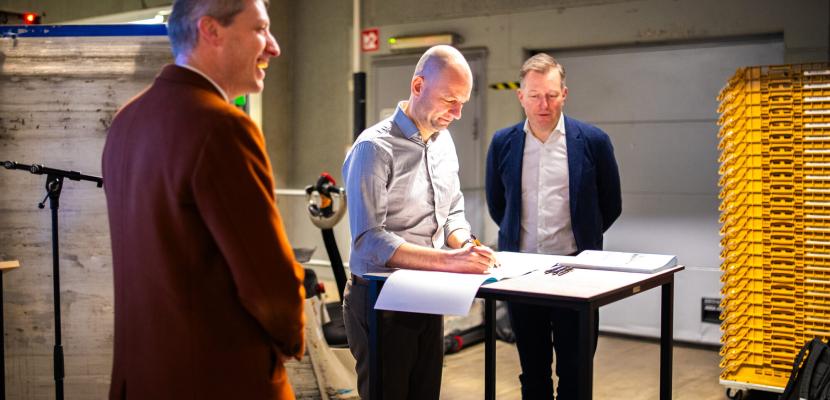
Connecting with stakeholders: signing a joint covenant on sustainable urban logistics.

About this good practice
The city of Mechelen has been working on sustainable urban logistics since 2014 and this through the participation in European projects. In every project there was the deliverable of organising stakeholder workshops. After some years, the need grew to structure the stakeholder engagement more. Therefore it was decided in 2019 to start with a structural stakeholder platform and it was named ‘the zero-emission working group’. The working group would be organised 2 times per year. It is mainly to inform & inspire each other and to make joint decisions. With the launch of this working group we also asked for a joint goal and that goal is to reach zero-emission city logistics by 2030. After one year of writing and negotiating the covenant was signed in september 2020 by 29 logistics service providers LSPs and the city’s aldermen of sustainability and mobility. This covenant outlines eight action points with clear responsibilities for both the city and the LSPs, demonstrating a commitment to tangible progress towards a greener future for urban freight.
Expert opinion
Resources needed
Key resources for establishing the working group and producing the covenant included substantial personnel hours (1,5 days/week for 1 year) , meeting space rentals,(5.000 € ) and catering provisions (5.000 € )."
Evidence of success
29 logistic service providers signed the covenant. On average we have 25 participants every meeting of the zero emission working group. Since the launch there were 7 extra logistics companies that also signed the covenant. Logistics companies choose first for Mechelen to experiment with 0-emission deliveries.
Some examples:
1) Bpost started in Mechelen first with 0-emission deliveries with biketrailers and e-vans.
2) DPD experimented first with an e-van in Mechelen
3) PostNL delivers 0-emission
Potential for learning or transfer
The Zero-Emission Working Group initiative in Mechelen offers valuable lessons for other regions aiming to enhance urban logistics sustainably. Key transferable aspects include: Structured Stakeholder Engagement to align sustainability goals, Clear Objectives and Commitment formalized through a covenant, which fosters tangible stakeholder involvement, and an Action-Oriented Approach that provides a framework for measurable progress, inspiring similar agreements elsewhere. However, challenges include persuading political leaders to prioritize sustainable urban logistics and demonstrating the economic and environmental benefits to secure their support. Additionally, engaging logistics companies and building trust is essential, showing the value of participation. While the initiative demands considerable time and effort to coordinate, the outcomes—a unified vision and stakeholder buy-in—make the investment worthwhile

